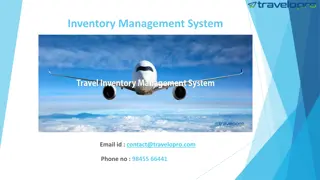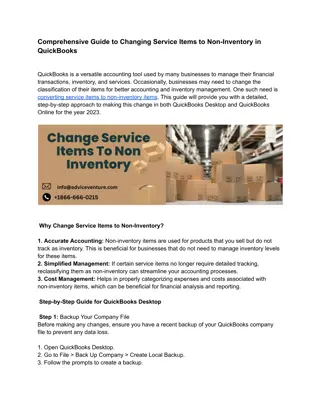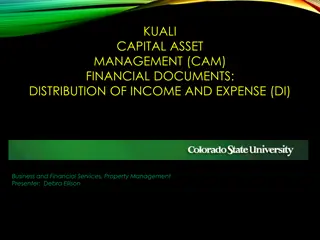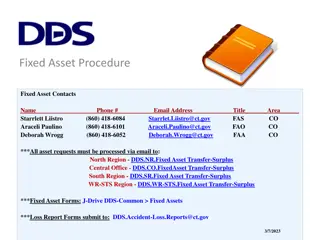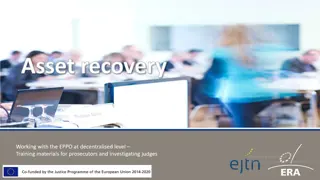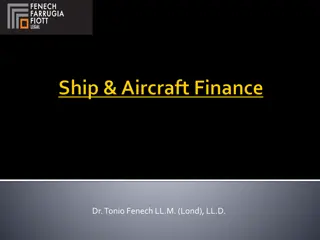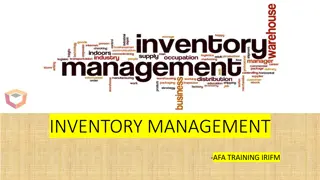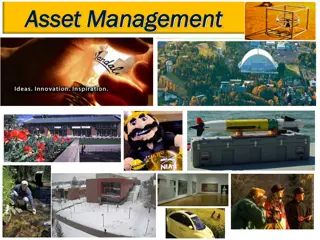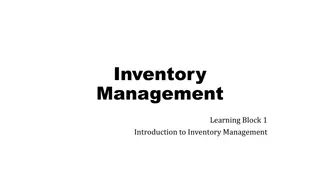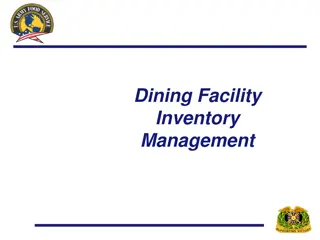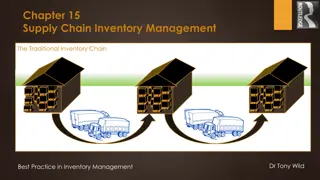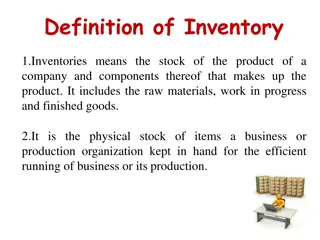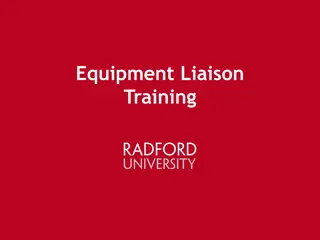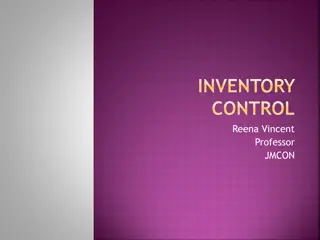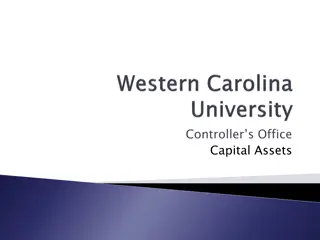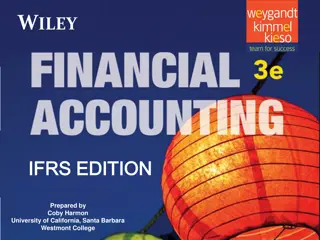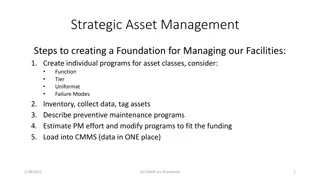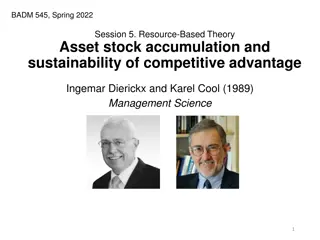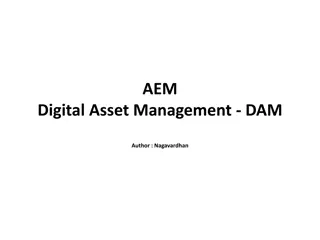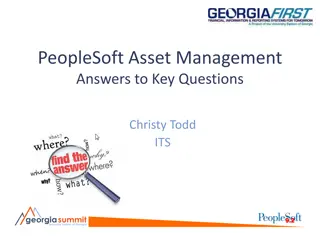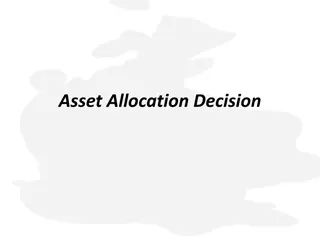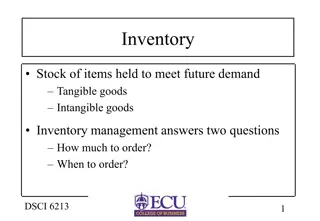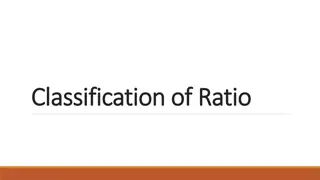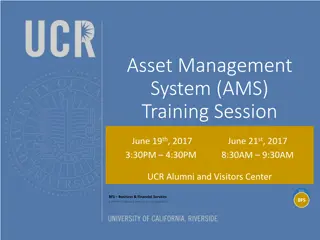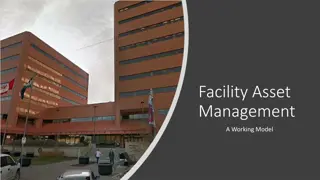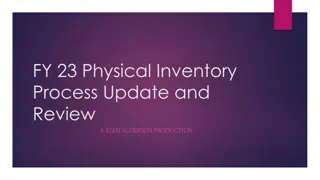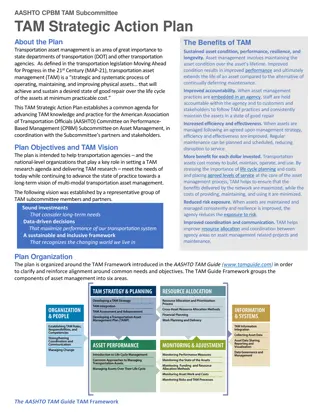Comprehensive Guide to Procurement, Purchasing, and Asset Inventory Training
Explore the essential concepts of procurement and purchasing, including the differences between them, public bidding requirements, confidentiality in bids, quotations, and proposals. Learn about asset inventory management and surplus disposal processes to enhance your organization's efficiency and c
0 views • 25 slides
INVENTORY MANAGEMENT.
Managing inventory under ISO 15189 guidelines involves Quantity, Quality, and Process management. Key aspects include demand forecasting, inventory movement control, consumption planning, and ensuring fitness for purpose. Quantity management aims to balance demand and supply, manage supply economics
5 views • 13 slides
Strategic Infrastructure Asset Management Plan (SIAMP) Overview
Strategic Infrastructure Asset Management Plan (SIAMP) Module 6 focuses on portfolio management principles for effective infrastructure asset management. Portfolio managers are guided on planning, managing work portfolios, and collaborating with other delivery management modules. The SIAMP outlines
4 views • 32 slides
Inventory Management System
Travelopro\u2019s Inventory Management system manages and distributes travel inventories through multiple sales channels. It provides functionalities to automate the distribution and affordable prices depending upon the market demand. Our Inventory Management System provides flexibility and sales ou
3 views • 14 slides
Inventory Management Software
Travelopro is a complete inventory management software system that gives you the ability to control your financial situation, inventory as well as your relationships with your customers, suppliers and employees. Our Inventory Management software basically based system software to stay track on level
12 views • 15 slides
Delete Inventory Adjustments in QuickBooks Online and Desktop
Delete Inventory Adjustments in QuickBooks Online and Desktop\nDeleting inventory adjustments in QuickBooks is easy. To delete an inventory adjustment in QuickBooks Online, go to \"Inventory\" > \"Inventory Adjustments\", find the adjustment, click it, and choose \"Delete\". For QuickBooks Desktop,
1 views • 4 slides
Comprehensive Guide to Changing Service Items to Non-Inventory in QuickBooks
Learn how to change service items to non-inventory items in QuickBooks with our comprehensive guide. This step-by-step resource will help you efficiently manage your inventory and service items, ensuring accurate financial records. Whether you're using QuickBooks Desktop or Online, our guide provide
1 views • 4 slides
Distribution of Income and Expense Document Overview
This document provides detailed information on the Distribution of Income and Expense (DI) process within Kuali Capital Asset Management (CAM). It explains the purpose of DI documents, their use in capitalizing Work-In-Progress (WIP) assets, and the various scenarios in which DI documents are utiliz
2 views • 29 slides
Fixed Asset Management Procedures and Contacts Overview
Comprehensive overview of fixed asset management procedures, contact information, asset categories, receiving new assets guidelines, inventory audits, responsibilities, and related forms. Includes details on controllable and capital equipment, asset definitions, categories, and the roles involved in
1 views • 15 slides
Improving Inventory Tracking System for Public Health in Kenya
A pilot project in Kenya aimed at building a sustainable inventory tracking system for medicines using existing tools to address challenges such as delays in approval processes and inaccurate inventory data. By deploying a lightweight survey platform in two counties, the project successfully monitor
2 views • 8 slides
Understanding Asset Recovery: Importance, Processes, Tools, and Global Impact
Asset recovery involves the retrieval of assets wrongfully taken through theft, fraud, or criminal acts. This process is crucial in combating financial crimes, such as money laundering and corruption. The content discusses the significance of asset recovery, various processes involved, tools used, a
0 views • 34 slides
Fixed Asset Management Procedures and Contacts Overview
This document provides an overview of fixed asset management procedures, contacts, categories, and responsibilities within the State of Connecticut. It covers the definition of fixed assets, capital vs. controllable equipment, receiving new assets, inventory audits, asset management responsibilities
0 views • 15 slides
Understanding Asset Shares and Estate Management in Insurance: Insights from the 35th India Fellowship Webinar
Delve into the complexities of asset shares and estate management in the insurance industry through the lens of the insightful 35th India Fellowship Webinar. Learn about historical paradigms, regulatory shifts, and available alternatives for insurers in managing asset shares and estate growth. Explo
3 views • 30 slides
Legal Infrastructure for Asset Finance in Civil Law Jurisdictions
The Civil Code outlines obligations and guarantees in asset finance, with specific qualifications like lawful causes of preference and security trusts. Privileges and hypotecas play key roles in the legal system. Title transfer by way of security fosters integrated asset finance systems. The aviatio
0 views • 106 slides
Comprehensive Guide to Inventory Management Principles
Inventory management is crucial for efficient store operations. Learn about the art of managing stock, maintaining optimal levels, and the key principles guiding inventory management. Explore how to manage the right quantity, quality, time, source, and price of inventory, along with the procurement
1 views • 23 slides
University of Idaho Asset Management Overview
Asset management at the University of Idaho involves the strategic management of equipment assets to safeguard investments, comply with regulations, and facilitate cost recovery. The objectives focus on enhancing asset monitoring, accuracy of inventory records, personnel training, and adherence to p
0 views • 14 slides
Understanding Personality Assessments in Interviews
Personality assessments in interviews are valuable tools for evaluating a candidate's characteristics, abilities, and aspirations. Various types of assessments, such as structured and unstructured interviews, personality inventories like the Minnesota Multiphasic Personality Inventory, the Big Five
0 views • 28 slides
Introduction to Inventory Management: Key Elements and Learning Block Agenda
Inventory management is crucial in supply chain operations, involving roles, costs, and benefits of inventories. This learning block covers essential topics like inventory control, forecasting, and financial implications. Key elements include techniques for managing inventory levels, types of invent
2 views • 46 slides
Effective Inventory Management Strategies for Dining Facilities
Efficiently managing inventory in dining facilities is crucial for financial success. Learn how to set inventory objectives, handle surplus stock, reduce excess inventory, and control inventory effectively through automated tracking tools and targeted stockage objectives.
0 views • 9 slides
Dr. Tony Wild's Best Practices in Inventory Management
Explore the traditional inventory chain and best practices in inventory management as detailed by Dr. Tony Wild. Topics include inventory location options, the 9-box model for annual demand, supply box structure, challenges in inventory management, and availability structure. Gain insights into inve
1 views • 15 slides
Understanding Inventory Management and Control in Business
Inventory refers to the stock of products, raw materials, and goods in various stages of production within a company. Effective inventory management is crucial for ensuring smooth operations, optimizing resources, and meeting customer demands. It involves categorizing inventories, setting objectives
0 views • 68 slides
Global Framework for Efficient Asset Recovery Guidelines
The Global Framework for Asset Recovery, guided by the UNCAC, emphasizes returning stolen assets to combat corruption effectively. The UNCAC obligates signatory countries to return funds under specific conditions, promoting transparency and accountability in the asset return process. Stakeholders ad
3 views • 9 slides
University Asset Management Guidelines
University asset management guidelines cover the physical inventory policy, procedures, and fixed asset terminology for safeguarding, tracking, and reporting assets. Departments designate equipment liaisons to manage assets and conduct physical inventories regularly. Assets are categorized as capita
1 views • 21 slides
Factors Affecting the Amount of Depreciation in Asset Valuation
Depreciation in asset valuation depends on the cost, estimated useful life, and probable salvage value. The cost of an asset includes various expenses incurred to put it in working condition. Estimated net residual value is the expected sale value of the asset at the end of its useful life after ded
2 views • 5 slides
Comprehensive Guide to Inventory Control in Nursing Education
Explore the fundamentals of inventory control in nursing education, covering topics such as defining inventory, objectives of inventory control, importance, techniques, and accounting systems. Learn how inventory control plays a vital role in ensuring efficient and effective nursing service delivery
2 views • 78 slides
University Fixed Asset Management Guidelines
University fixed asset management guidelines detail procedures for maintaining accurate inventory records, updating asset information, conducting audits, and following policies. Departments are responsible for safeguarding assets, adhering to regulations, and obtaining approval for disposal. Ownersh
0 views • 69 slides
University Asset Management Procedures and Responsibilities
This presentation outlines the processes and responsibilities related to maintaining and controlling the university's capital assets. It covers tasks such as updating asset records, conducting audits, and serving as a liaison between units and the Fixed Assets Accountant. The slides detail the Fixed
2 views • 67 slides
Understanding Inventory Management in Financial Accounting
Explore the intricacies of inventory management in financial accounting through discussions on classifying inventory, determining inventory quantities, and the impact of inventory errors. Learn about inventory cost flow methods, the lower-of-cost-or-net realizable value basis, and the financial effe
3 views • 14 slides
Strategic Asset Management for Facilities Optimization
Establish a solid foundation for managing facilities by creating individual asset programs, conducting inventory and data collection, implementing preventive maintenance strategies, estimating effort, and loading data into a centralized CMMS. Asset management is crucial for project managers as it im
1 views • 7 slides
The Importance of Asset Stock Accumulation for Sustainable Competitive Advantage
Strategy literature often overlooks the crucial role of building and accumulating non-tradeable asset stocks for achieving and safeguarding competitive advantage. The concept of asset stock accumulation provides a complementary framework to evaluate the sustainability of a firm's competitive edge, e
1 views • 7 slides
Understanding Digital Asset Management (DAM) on AEM Platform
Digital Asset Management (DAM) is an essential application on the AEM Platform that enables users to effectively organize and manage various digital assets like images, videos, documents, and audio files. It offers features such as metadata support, renditions, asset finder, and administration UI. L
0 views • 20 slides
Asset Recovery Practices in England and Wales: Criminal vs. Civil Proceedings
Asset recovery in England and Wales involves a combination of criminal and civil proceedings to secure justice and return funds to victims of crime. The CPS's Proceeds of Crime Division plays a crucial role in obtaining Restraint Orders and Confiscation Orders. Civil recovery, focusing on illicit fi
0 views • 11 slides
Understanding PeopleSoft Asset Management at Georgia University System Summit
Explore key questions surrounding PeopleSoft Asset Management at Georgia University System Summit, including processes for adding and capitalizing assets, handling open transactions, and differentiating between open and pending transactions. Gain insights into updating tables, managing asset details
0 views • 33 slides
Understanding Asset Allocation and Portfolio Management
Explore the process of asset allocation, which involves distributing wealth among different countries and asset classes for investment purposes. Learn about asset classes, the components of structured portfolio management processes, and the individual investor life cycle stages. Dive into strategies
0 views • 46 slides
Essentials of Inventory Management: Answers and Strategies
Inventory management involves determining how much and when to order items to meet future demand. It addresses different types of inventory, reasons for holding inventory, forms of demand, inventory costs, control systems, ABC classification, and basic EOQ model assumptions.
0 views • 27 slides
Understanding Financial Ratios for Business Analysis
Financial ratios like current ratio, quick ratio, inventory turnover ratio, asset turnover ratio, and profit margin ratio are crucial tools for assessing a company's financial health and performance. Current ratio measures short-term debt-paying ability, quick ratio assesses liquidity, inventory tur
0 views • 15 slides
Asset Management System (AMS) Training Session - June 19th & 21st, 2017 at UCR Alumni and Visitors Center
Join us for the Asset Management System (AMS) Training Session covering equipment management basics, AMS fundamentals, asset searching, updates, dispositions, inventory verification, and more. Learn about inventorial equipment and its management role at the University of California. Enhance your und
0 views • 52 slides
Facility Asset Management and Building Life Cycle: A Comprehensive Guide
Explore the framework of Facility Asset Management and Building Life Cycle, focusing on proactive asset management strategies, total cost of ownership, asset lifecycle management, and asset management system components. Understand the importance of defining assets, setting objectives, creating plans
0 views • 23 slides
Update and Review of FY23 Physical Inventory Process
This production by Stan Alderson provides essential information on updating the physical inventory process for capital assets. It includes details on new or updated forms, such as the Capital Asset Manual Addition Request and Capital Asset Reinstatement Request. The importance of conducting a physic
0 views • 14 slides
Transportation Asset Management Strategic Action Plan
Transportation Asset Management (TAM) is crucial for state transportation departments to operate, maintain, and improve physical assets efficiently. The TAM Strategic Action Plan aims to enhance TAM practices by emphasizing sustained asset condition, accountability, efficiency, and effectiveness. Th
0 views • 4 slides



